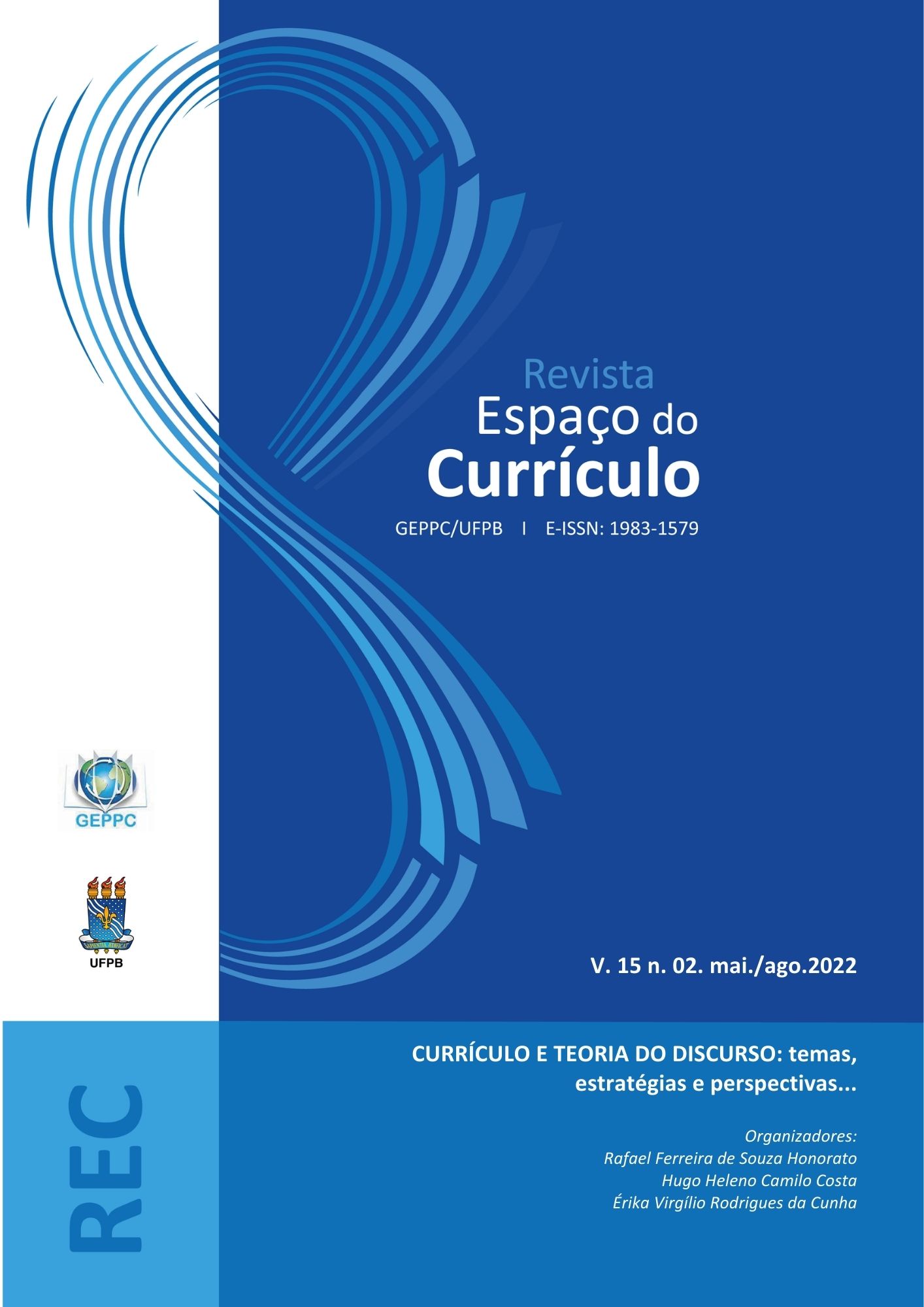DISCURSIVE STRATEGIES IN CURRICULUM RESEARCH
DOI:
https://doi.org/10.15687/rec.v15i2.64568Keywords:
Curriculum, Discourse Theory, PolicyAbstract
This issue of Curriculum Specie Journal, dedicated to the contributions of Discourse Theory to curriculum studies, offers the reader a collection of studies that aim to use the theories of Ernesto Laclau and Chantal Mouffe, and their relationship with post-structural and post-structural visions. foundations, as a theoretical, methodological and epistemological reference, capable of helping with regard to the understanding of curricular phenomena, whose complex and dynamic natures require plastic strategies for the understanding and projection of different forms of political intervention. These articles are attentive and sensitive to hegemonic dynamics that mark the production of curriculum policies, which deal with issues related to Basic Education, teacher training, subjectivities, the different identification processes, as well as other articulatory processes involved with the field. of Education. All articles, therefore, revolve around the central theme of deconstruction, which is the political-discursive production of society (LACLAU, 2011), turning to the complex terrain of education and curriculum policy. The convergence of such works tends, then, to provide a context for conversations between researchers and research, themes, associations, theoretical and empirical conceptions and interpretations about how Discourse Theory has enabled the understanding of different curricular issues that mark what we can call of an actuality of the field.
Downloads
Metrics
References
DERRIDA, J. Posições. Belo Horizonte: Autêntica, 2001.
LACLAU, Ernesto. Emancipação e diferença. Rio de Janeiro, EdUERJ, 2011.
Downloads
Published
How to Cite
Issue
Section
License
Copyright (c) 2022 Curriculum Space Journal

This work is licensed under a Creative Commons Attribution 4.0 International License.
By submitting an article to Curriculum Space Journal (CSJ) and having it approved, the authors agree to assign, without remuneration, the following rights to Curriculum Space Journal: first publication rights and permission for CSJ to redistribute this article. article and its metadata to the indexing and reference services that its editors deem appropriate.
















